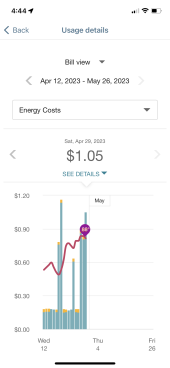6
629658
Guest
I went the opposite direction and everyone including my wife can operate my system and if issues arise they know how to keep the lights on. Operational simplicity was high on my priority list.Your first guess is correct. No one else in the family is interested enough to bother.
But then I'd guess that would cover nearly all systems, the builder knows and everyone else is Oh Noes



